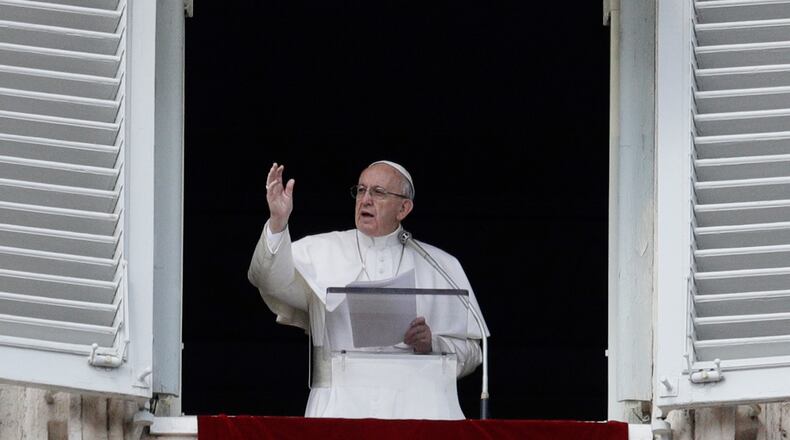Brazilian Cardinal Claudio Hummes, a longtime friend of Francis and former head of the Vatican’s office for clergy, is reportedly pressing to allow viri probati in the Amazon, where the church counts around one priest for every 10,000 Catholics.
If the Pope approves, he’ll want the practice to grow “from the bottom up,” meaning from bishops and Catholic leaders from around the world, said William Portier, a University of Dayton expert and program director and Mary Ann Spearin chair of Catholic Theology.
Here’s three things Portier mentioned about Pope Francis’ comments:
1. The priest shortage is caused by many things, including a culture shift
A shortage of priests is borne out of many things, including a shifting culture, Portier said.
Catholicism was at its high point in the late 1950s and early 1960s, Portier said. At that point, people who wanted to become priests, had more support.
Demographics have shifted, Porter said. Pope Francis has also expressed a concern for how many men have left ministry in order to marry, the AP reports.
2. There are already married priests, so it’s not that strange
The church allows some exceptions to the rule already.
Priests in the eastern rite Catholic Church are allowed to be married, the AP reports.
Also, married Anglican priests who convert to Catholicism are allowed to be married, Portier said. For that reason, the Pope’s comments didn’t really stand out to Portier.
“It’s not really all that unusual or striking,” he said.
3. Pope Francis is unlikely to order the change
Pope Francis is unlikely to simply announce a decree to make the change, Portier said.
He’ll leave it to the bishops. If the shortage requires such a change, he’ll want that decision to be made by them, Portier said.
“He wants it to rise up from below as a local need,” Portier said. “If bishops want to do it, it will just be that way.”
5 HIGHER ED MUST READS
• BINGE DRINKING: Student death has area colleges re-evaluating
• Central State president met with Trump in Washington
• 3 things to know about Wright State’s next president
• National Science Foundation awards UD researcher more than $500K
• Area college named ‘most beautiful Christian’ campus in Ohio
About the Author
